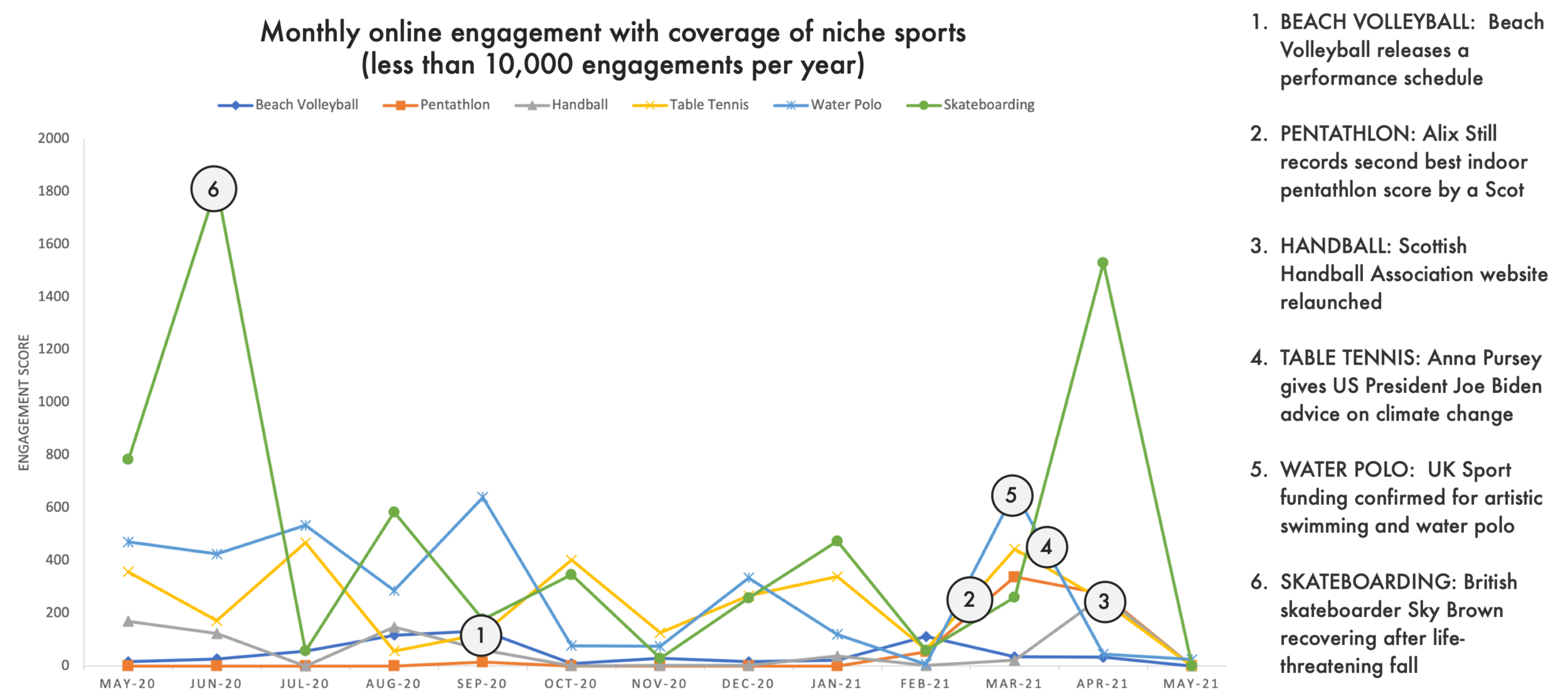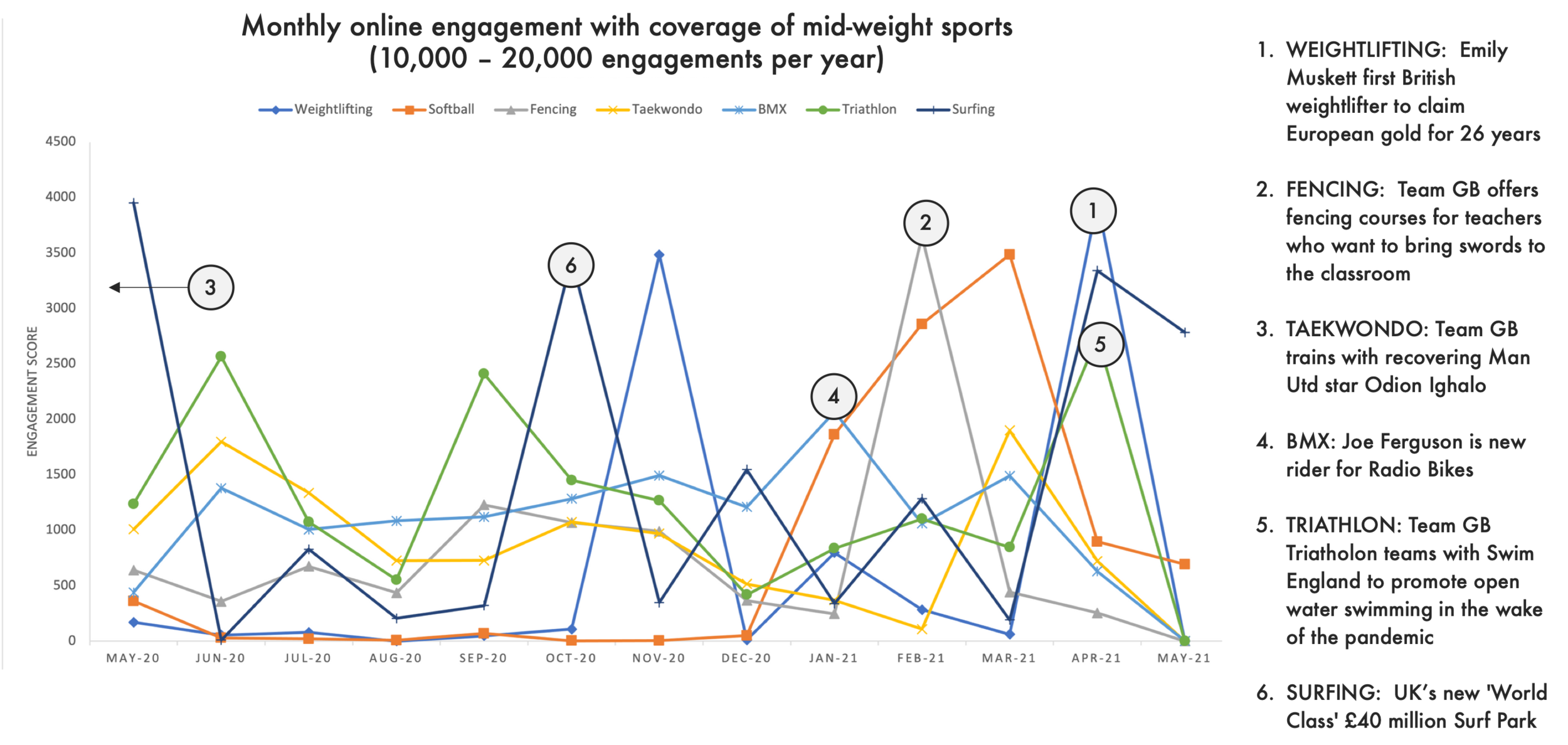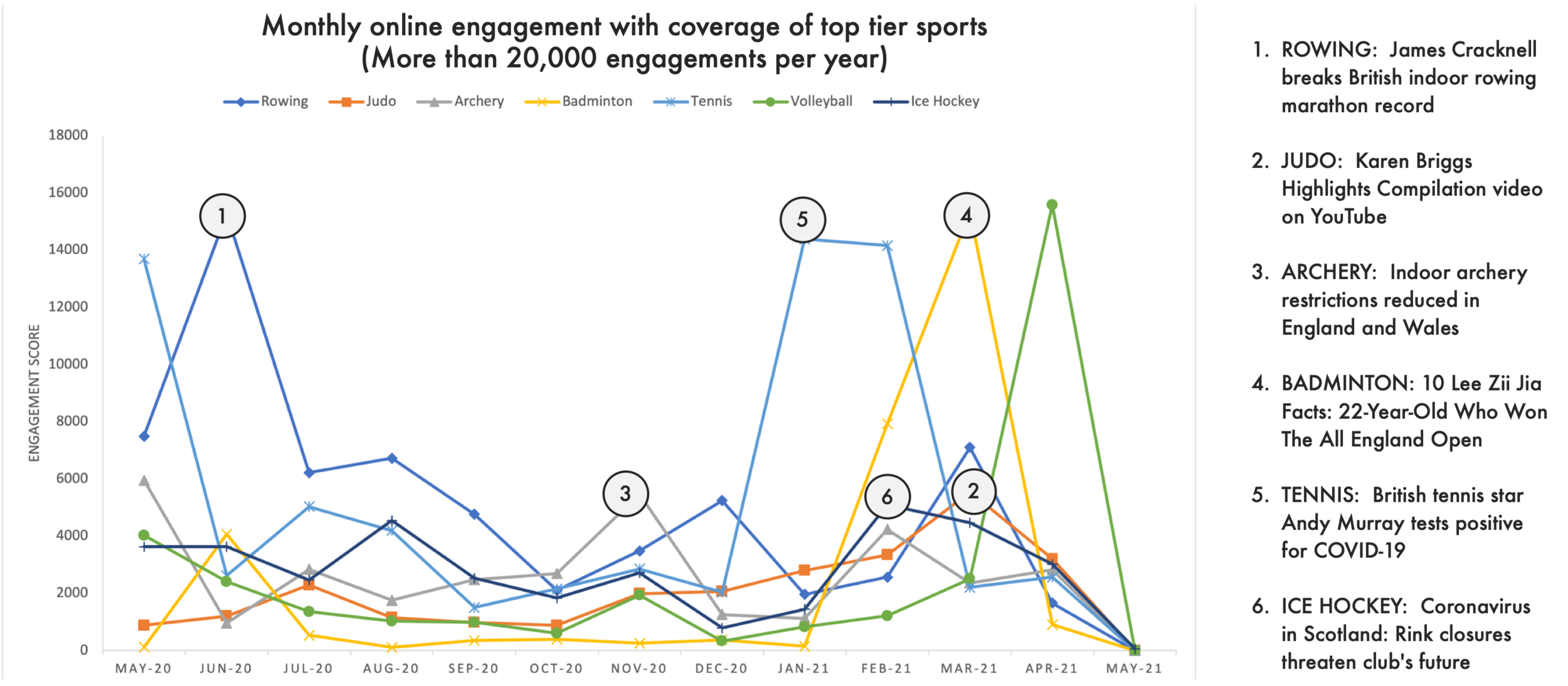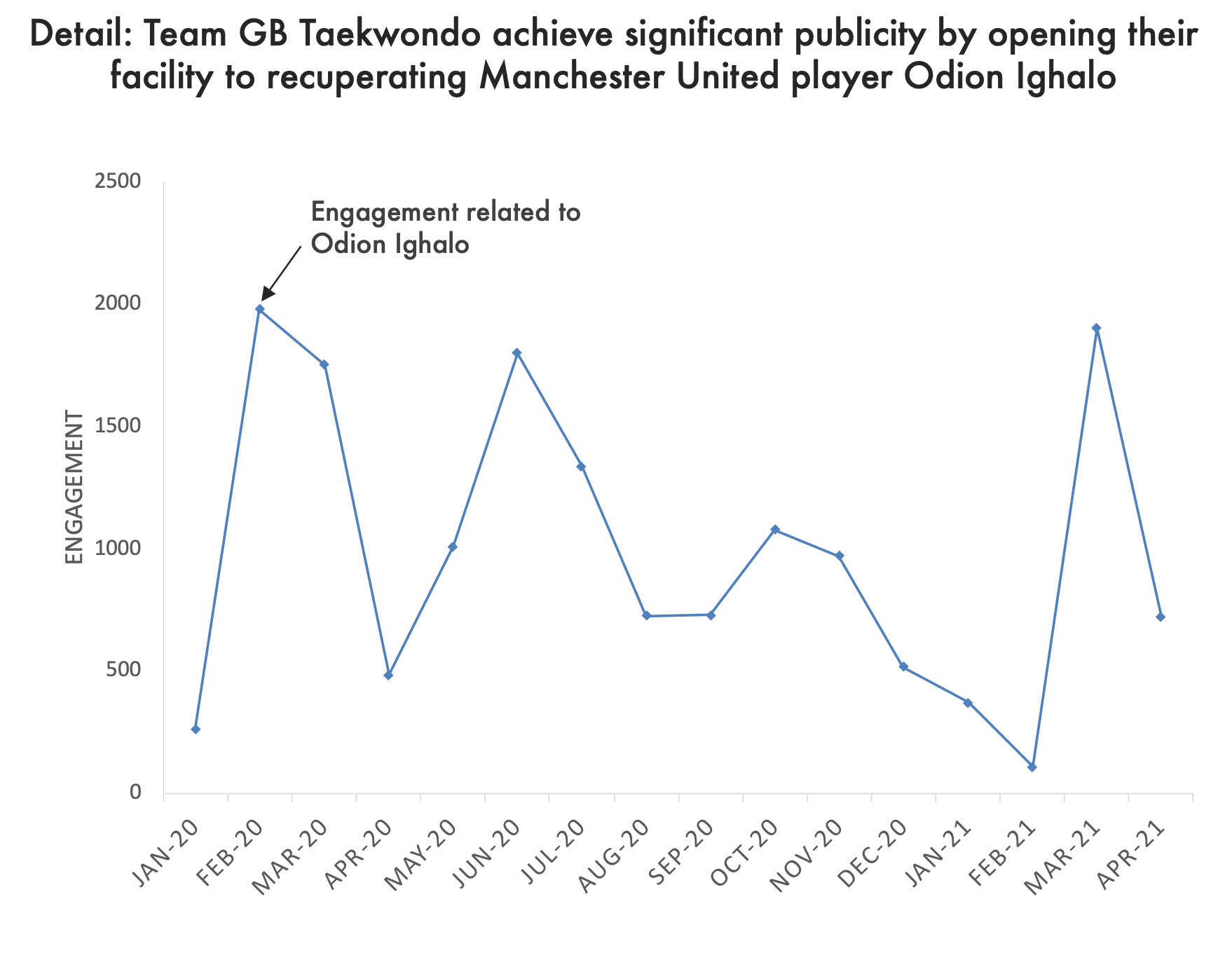How Team GB survived pandemic
Ahead of the Tokyo games, we look at which sports have managed to maintain and spike public interest during the year-long delay to the games.
In the wake of the Covid-19 pandemic, UK sport has suffered devastating financial losses leaving many GB Olympic teams without the proper funding. The Football League, the Rugby Football Union and the England and Wales Cricket board have disclosed that between them they could be losing more than £700m within the next year due to losses from Covid-19. However, this is only the tip of the iceberg. According to sources at The Guardian six unnamed UK Olympic sports face insolvency form lost sponsorships, reduced membership fees and the inability to host events.
Public interest in these sports often correlates with funding, and in some cases popularity and public interest forms part of their evaluation for funding. That public interest in a particular sport is cyclical and dependent on high profile events like the Olympics. Outside the cycle of these events some of these sports are not always in the public consciousness or able to attract the same limelight as mainstream sports. A delay of one year to the games has starved niche Olympic teams of publicity and support.
To evaluate which of the Team GB Olympic sports are could do more to promote themselves, and which are doing a good job sustaining public interest we looked at online engagement with a range of Olympic sports in the year running up to the Games. The graph below shows the relative profile of various Team GB sports teams, based on social media data collected from March 1st 2020 to March 1st 2021.
Online engagement: Team GB
From our analysis, niche sports (driving fewer than 10,000 online interactions per year) include Beach Volleyball, Pentathlon, Handball, Table Tennis, Water Polo, and Skateboarding. Mid-weight sports are Weightlifting, Softballs, Fencing, Taekwondo, BMX, Triathlon, and Surfing. More popular sports that drive over 20,000 engagements per year include Rowing, Ice Hockey, Judo, Archery, Badminton, Tennis, and Volleyball. And we didn’t bother to analyse engagement around Basketball, Golf or Rugby because these sports drive millions of engagements per year – they are perennially popular regardless of the Olympics.
The slideshow below shows online engagement with different Team GB Olympic sports over the past year from the beginning of the pandemic until March 2021 – a time when sport was reeling from lack of participation, and suspension of the Tokyo Games. Within each chart, you can see how events and announcements have raised the profile of different sports in terms of online attention and engagement.
Highlights from the data include four different types of publicity, some of them easier to engineer than others.
1. Human interest
Andy Murray got Covid in January of 2021. This sparked a huge level of public support beyond the usual back-page coverage. He sustained the attention by swapping shirts with renowned football player Cristiano Ronaldo at the Australian Open a month later (see point 3, ‘Celebrity Interaction’)
2. Participation campaigns
In April 2021 the Triathlon Team GB teamed up with Swim England and the Royal Life Saving Society UK to publish safety advice for open water swimmers, following the government’s announcement that people will be able to spend more leisure time outdoors in England. This was the most publicity they achieved all year. In February of the same year UK Fencing launched a campaign and educational resources for teachers looking to try out fencing in schools, and also achieved by far their biggest spike in attention for the year.
3. Celebrity interaction
There are two strong examples of this – Table Tennis contender Ann Pursey met US President Joe Biden to talk about climate change, winning a lot of publicity for her team. And in February 2021 the UK Taekwondo team invited recuperating Manchester United player Odion Ighalo to train with them. (Please note, this is before the study begins but this is still their biggest spike for years.)
4. Viral video
Two of the biggest attention spikes for Judo were achieved with the release of YouTube clips: Bodybuilder and YouTuber Obi Vincent trying Judo with former team GB five-time Judo champion Robby Rich (September 2020) and a highlight reel from UK Judo legend Karen Briggs (March 2021).
Of course it is not possible, or desirable to recreate the jeopardy that Andy Murray was in, when suffering from Covid. However, any sport that needs the oxygen of publicity should leverage video clips and celebrity fans. And the most sustainable efforts are those that promote and encourage participation – strengthening future prospects for the sport as well as bringing much needed attention to the athletes who have spent years training to represent Team GB in Japan.
Signify is an ethical data science company that works with athletes, clubs and governing bodies to grow fan engagement and combat online abuse.




